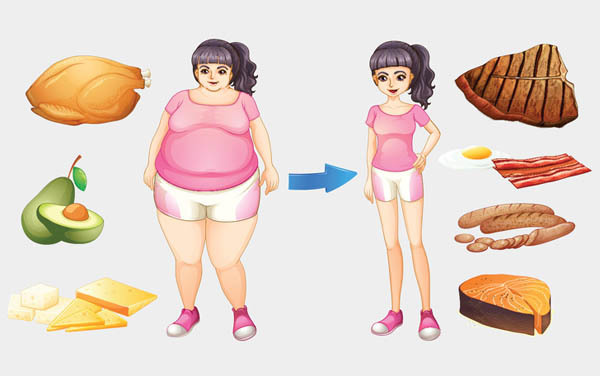The battle between the fat and the thin is always ongoing, with some people constantly searching for weight loss methods while others struggle with gaining weight no matter how much they eat. Experts believe that the factors behind being fat or thin are:

Genetics: While some people quickly convert food into stored fat, others have a slower metabolism and accumulate fat faster. Some people with larger muscle mass require more energy to maintain, making it difficult to gain weight, and vice versa.
Physical activity: Different levels of physical activity lead to different calorie expenditures. Those who do not exercise or have low levels of physical activity burn less energy.
Basal metabolic rate: This is the amount of energy required to meet basic human needs such as respiration, circulation, digestion, and maintaining body temperature. If you have a higher basal metabolic rate, you burn more calories and find it easier to lose weight. Conversely, if you have a lower basal metabolic rate, you burn fewer calories and find it easier to gain weight. Muscle has a much higher basal metabolic rate than fat tissue, so people with more developed muscles are less likely to be overweight or obese.

Diet: An unhealthy diet, imbalanced nutrition, and a diet high in carbohydrates create conditions for faster fat accumulation. Even when you eat a lot, if the nutritional composition is unbalanced and lacks essential nutrients for your body’s needs, you will still feel hungry and have the desire to eat. However, the nutrients you consume are not necessary and are converted into reserve fat, while the body’s needed nutrients are not provided because they are not present in your food.

Health status: People with health problems such as thyroid disease, diabetes, or metabolic disorders will be affected in terms of weight gain speed and water retention in the body.
Due to the important factors mentioned above, the principle of weight balance is to ensure that the energy intake matches the body’s needs. Those who want to gain weight need to consume more energy than they expend, while those who want to lose weight need to do the opposite. And in both processes, it is important to focus on gaining muscle mass rather than fat. Consistent exercise and a proper diet are the key factors to maintaining a healthy weight.
Genetics can predispose individuals to either quickly convert food into stored fat or, conversely, have a slower metabolism that accumulates fat faster. Additionally, those with larger muscle mass due to genetic factors require more energy to maintain their physique, making unintended weight gain less likely.
Physical activity levels directly impact calorie expenditure. Those who lead sedentary lifestyles or engage in minimal physical activity burn fewer calories and are more likely to struggle with weight gain. In contrast, active individuals expend more energy, making it easier to maintain a caloric deficit and promote weight loss.
BMR refers to the energy required for basic bodily functions such as respiration and circulation. A higher BMR means an individual burns more calories at rest, facilitating weight loss. Conversely, a lower BMR burns fewer calories, making weight gain more likely. Muscle tissue has a higher BMR than fat tissue, so individuals with more developed muscles are less prone to overweight or obesity.
An unhealthy, imbalanced diet, particularly one high in carbohydrates, creates an environment conducive to rapid fat accumulation. Even consuming large volumes of food, an unbalanced diet lacking essential nutrients will leave you feeling hungry and desiring more food. However, the excess nutrients are converted into reserve fat, leading to weight gain, while the body remains deprived of the nutrients it truly needs.
Absolutely. Health conditions such as thyroid disease, diabetes, or metabolic disorders can significantly impact weight gain speed and water retention in the body. Individuals with these conditions may find it challenging to manage their weight effectively.
The principle of weight balance revolves around matching energy intake with the body’s needs. To gain weight, one must consume more energy than they expend, while weight loss requires the opposite approach. In both cases, focusing on building muscle mass through consistent exercise and a proper diet is key to maintaining a healthy weight.
What You Need to Know About Chocolate
Despite its tasty flavor, there are long-standing concerns that eating too much chocolate may lead to weight gain and tooth decay. Despite this, chocolate continues to be a popular indulgence during holidays and a meaningful gift to share with loved ones. It is also a popular ingredient for beauty treatments.



































